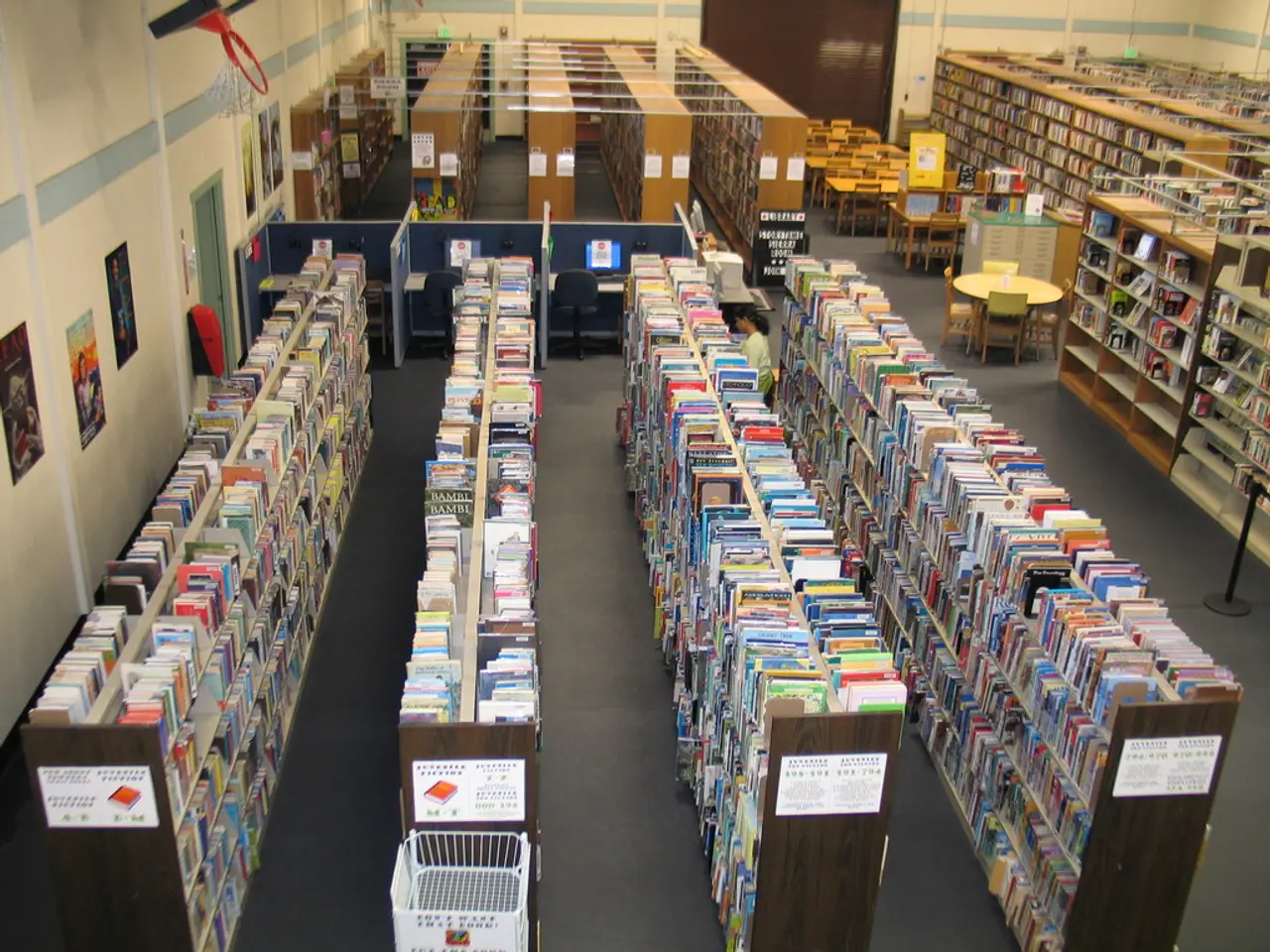"7 Strategies for Harnessing Community Assets for Educational Ventures that Foster Learning Communities"
In the pursuit of a well-rounded education, homeschoolers can find ample opportunities for growth and development within their local communities. Here are some ways homeschoolers can leverage local resources to enhance their learning experience.
Libraries as Learning Hubs
Local libraries serve as accessible centers for research materials, hosting workshops, and providing spaces for group collaboration. They offer archives, databases, and local history resources that homeschoolers can use for projects involving community history or local science studies. Librarians can guide research and support inquiry-based learning, making libraries valuable partners in homeschool education.
Cultural Learning through Museums
Museums provide homeschoolers with hands-on, cultural learning experiences. They offer interactive exhibits, live programs, and immersive experiences that engage multiple senses. For example, the Museum of the Bible offers live, interactive programs where students learn about historical periods through role-playing with interpreters and engagement with material culture and artifacts. Other museums offer workshops and activities designed specifically for homeschool groups, enhancing experiential learning beyond textbooks.
Real-World Learning Opportunities with Local Businesses
Local businesses offer real-world learning opportunities by allowing homeschoolers to engage with practical applications of skills and concepts taught at home. This can take the form of apprenticeships, internships, or project collaborations where students learn about entrepreneurship, economics, or vocational skills firsthand.
Service Learning for Civic Responsibility
Service learning is an educational approach that combines community service with instruction and reflection to enrich learning and promote civic responsibility. It benefits homeschool education by linking students with nonprofits, food banks, and environmental groups, providing real-world contexts to apply academic concepts, develop empathy, and build community ties.
Oral History Projects and Intergenerational Connections
Engaging with senior centers and community members for oral history projects connects children with personal narratives that capture historical events from firsthand perspectives. This creates a valuable learning environment where stories and experiences become living textbooks, fostering respect across generations and enhancing social skills and historical understanding.
Cost-Effective Learning Opportunities
Community-based learning experiences can be cost-effective for homeschoolers compared to traditional classroom methods. Many local institutions offer free or discounted admission, homeschool-specific programs, and group rates. Examples include museums with special homeschool days, free entry to historic sites, and community events designed for homeschoolers.
The Power of Public Records
Public records offer primary source materials for investigating local problems and government responses, developing analytical skills and understanding of transparent governance.
Water Quality Testing and Environmental Studies
Conducting water quality testing in nearby streams reveals ecosystem health and human environmental impact, teaching chemistry concepts. This hands-on approach to environmental science provides tangible learning experiences that complement traditional homeschooling approaches.
Civic Education through Government Participation
Government participation becomes tangible when children attend city council meetings for government studies, interview local officials for leadership projects, and engage with civic education resources.
In conclusion, community-based learning experiences offer homeschoolers a wealth of opportunities to enrich their education, from hands-on learning experiences at museums and libraries to real-world applications with local businesses and service learning projects. These experiences foster a deeper understanding of subjects, promote civic responsibility, and provide valuable connections within the community.
[1] Museum of the Bible - https://www.museumofthebible.org/ [2] Local Museum Offers Homeschool Days [3] Homeschooling and Local Businesses [4] Service Learning in Homeschool Education [5] Cost-Effective Homeschooling Strategies
- In addition to local libraries and museums, homeschoolers can explore public speaking opportunities at community events to supplement their education-and-self-development, enhancing their lifestyle through improved communication skills.
- Encouraging programming skills alongside science studies, homeschoolers can participate in coding workshops offered by some local businesses, broadening their knowledge beyond traditional textbooks and fostering a well-rounded education.




